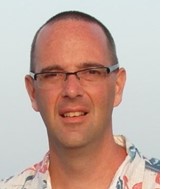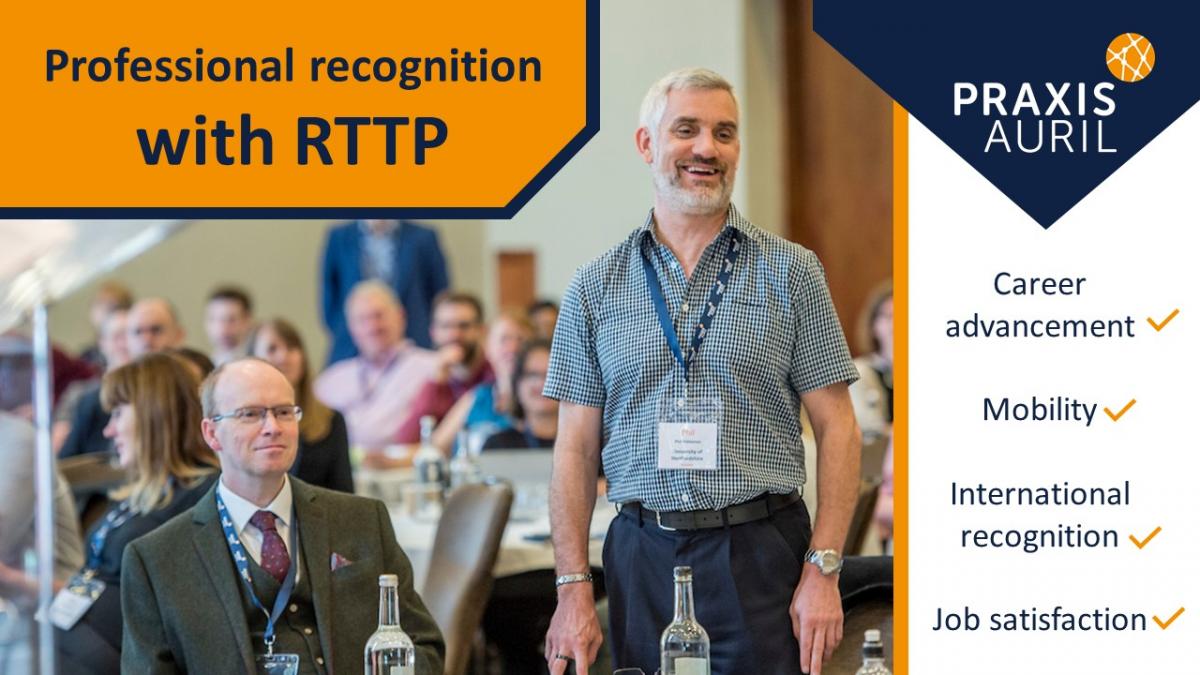PraxisAuril’s MarComms Manager Craig Smith caught up with Richard Borman about what RTTP represents for him and why he highlights this accreditation in communications with the outside world, as well as within GSK.
 Richard Borman RTTP, GlaxoSmithKline
Richard Borman RTTP, GlaxoSmithKline
Richard is an enthusiastic and highly motivated negotiator and transactor, with proven expertise in a drug discovery environment both as a scientist and technology transfer professional, gained in both a successful biotech company and at GlaxoSmithKline. Richard's expertise includes the negotiation and execution of a broad range of legal agreements, project and people management skills and out-sourcing of contract research studies. Borman's contributions to business development opportunities, including scientific support for, and evaluation of, both in- and out-licensing opportunities and conduction of due diligence exercises have provided the opportunity to develop both personally and professionally into an experienced drug discovery scientist, with considerable expertise in managing and developing drug discovery programs, academic collaborations and alliances.
Q1: What influenced your decision to seek RTTP accreditation?
A: I was keen to acquire a professional accreditation which reflected and demonstrated my experience as a negotiator and transactor in the Technology Transfer workspace. RTTP met that goal, and I am now proud to include this accreditation on communications both within and outside of GSK.
Q2: Did you plan your path to RTTP accreditation?
- If yes, can you detail the training, courses, mentorship and professional development opportunities you undertook to qualify?
- If no, can you detail your past professional experience which lead to your RTTP accreditation?
A: I joined the Academic Liaison group at GSK in 2009, taking a leading role in negotiating and executing various types of legal agreements with a broad range of global universities and academic institutes. I have become a renowned expert in the areas of external engagement and industry-academia interactions, negotiating and executing a broad range of legal agreements with Tech Transfer offices. In leading these contract negotiations with external parties worldwide, I propose deal terms, lead business discussions and co-ordinate all aspects of the process from preparation of a draft agreement through to contract execution. I report directly to Malcolm Skingle. To exemplify and give some highlights of my achievements during this time:
Licensing: I previously held roles in the Business Development group of the Immuno-inflammation therapy area unit, where my role included coordinating competitor intelligence activities and identifying assets for in-licensing. I was previously involved in in-licensing activities both in my time at GSK, and prior to that when working at Pharmagene (now Asterand). For the latter, I supported in- and out-licensing activities for a number of therapeutic assets during my time in the Therapeutics group.
During my time in Academic Liaison, I have executed nearly 1000 agreements, comprising over 250 collaboration agreements, over 20 consortium agreements, nearly 400 studentships and around 250 smaller agreements such as licenses, material transfer agreements, data transfer agreements and numerous amendments.
In my time in Academic Liaison I have managed GSK’s studentship programmes, putting in place nearly 400 agreements with leading UK Universities (with a total value in excess of £12 million), and managed GSK’s relationship with both EPSRC and BBSRC. I have worked with Doctoral Training Centres at a number of UK Universities (for example the Oxford SABS, and Nottingham DTC in Advanced Therapeutics and Nanomedicine), negotiating terms for those centres and coordinating GSK’s participation in same.
I have been sole negotiator on a number of Open Innovation initiatives within GSK. I have worked extensively on a broad range of EU-funded agreements (FP7, IMI and H2020); negotiating and transacting over 20 consortium agreements for these funding schemes, including several agreements where GSK was the lead party.
I have also been sole negotiator on two other open innovation initiatives at GSK; the Trust in Science program in Brazil and Africa, and the setting up of the Africa Open Lab initiative, which between them have provided several million pounds of funding to support local science.
Finally, my most significant contributions to date in the Academic Liaison group have been as sole negotiator on 2 significant DPAc (Discovery Partnerships with Academia) agreements. These are incredibly complex IP-licensing and research collaboration agreements, under which GSK makes substantial payments for in-licensing of intellectual property/technologies and also makes staged success-based payments in support of on-going research programmes, followed by royalty payments on successful projects. These agreements were negotiated by me with INSERM (the first DPAc agreement to be signed outside of the UK) and the Rappaport Institute (the first DPAc agreement for a biological agent; please see below for further details), with potential multi-million pound payments in both cases.
Q3: Part of the RTTP application is to detail the skills/knowledge you applied to a KE/TT project and how this project was possible because of your contributions. Can you give details of the project you used in your application? Or details of similar projects conducted before or after your accreditation?
A: My most challenging and rewarding agreement executed to date was, as mentioned above, the negotiation of a DPAc (Discovery Partnerships with Academia) joint collaboration and licensing deal with the Rappaport Institute in Israel. I acted as sole transactor on the deal, leading negotiations with the Institution, and progressing from the preparation of the first draft of the collaboration & licencing agreement through to execution of the eventual deal.
GSK had previously executed a small number of DPAc deals with academics in the UK and Europe (indeed I was responsible for the first DPAc deal outside of the UK), and as such had developed ‘standard’ deal terms for DPAc projects. These terms broadly consist of GSK taking a licence to the existing background intellectual property (IP) of the academic institution, providing research-based funding to support the development of the project, and milestone and royalty-based payments upon the development and commercialisation of a successful product. However, due to the complexities of this particular project (which was for a biological agent rather than a small molecule), previous deal terms were not suitable or appropriate for the project with the Rappaport Institution.
On this deal, I worked with colleagues in GSK’s Legal group, Global Patents attorneys, and the biologists who were to develop the asset, to identify an approach which was free from any third-party licenses, and was also free to licence back to the Rappaport Institute should GSK decide not to progress the eventual asset. I drafted an agreement incorporating a revised and unique termination option, but which also contained more standard licensing and collaboration terms. I negotiated the agreement to include a substantial up-front licence payment, staged milestone payments, and single-digit royalties on an eventual product. Due to the complexities of the termination clauses, I also negotiated a reverse-royalty rate so that GSK would receive payments should the project be terminated by GSK but further developed by Rappaport (with or without a third-party partner). This unique agreement is now used as an exemplar within GSK for DPAc collaborations involving biological agents.
Q4: Since becoming RTTP accredited has anything changed in you personally or professionally?
A: No, although as noted above I have ensured that I highlight this accreditation in communications with the outside world, as well as within GSK.
Q5: What advice would you give a fresh KE professional looking to become RTTP accredited?
A: The route that I took was to highlight my experience in support of my application. At the time I did not have sufficient training to pursue the application route which highlighted my training courses, mentorship and professional development opportunities. In retrospect, it may have been helpful if I had worked towards that aspect of an application from the earlier years of my career as a knowledge transfer professional.
